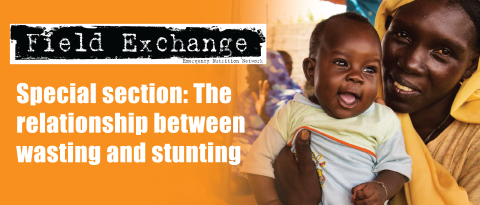Global Nutrition Cluster annual report
The Global Nutrition Cluster and the Technical Alliance (2021). Annual Report. Available from: https://www.nutritioncluster.net/resources_Annual_Report_2021
The Global Nutrition Cluster (GNC) 2021 Annual Report presents an in-depth view of the achievements of the GNC and the Technical Alliance (the Alliance) in 2021 to improve cluster/sector coordination and nutrition in emergencies programming. The report comes in two parts: 1) a global level summary of the work of the GNC and the Alliance, and 2) a country level report with 34 country profiles of the humanitarian response efforts of national clusters/sector coordination mechanisms.
In 2021, the GNC consolidated the significant expansion in its direct support to over 60 priority countries through close collaboration with key partners at the regional and country-level, increasing the scope and breadth of technical assistance through the Alliance and significant improvements in capacity building and knowledge management. Across the 34 countries providing data, 73.3 million people were identified as needing life-saving nutrition assistance in 2021, with emergency nutrition response services reaching 39.7 million women and children in need.
In 2021, 57 out of the 62 priority countries received direct support from the GNC. The Technical Support Team provided operational and technical support to national-level nutrition coordination mechanisms and partners for improved cluster coordination and nutrition in emergencies programming via remote and in-country deployments and helpdesks.
In response to the COVID-19 pandemic, the GNC continued to adapt to more flexible and innovative ways of working. The GNC's shift to providing remote support was evident in its capacity development strategy with 24 webinar events and 33 remote training packages implemented in 2021. To facilitate the increased scope of its work, the GNC continued to expand its blended learning programme to build capacity for nutrition coordination, information management and nutrition in emergencies programming. This programme comprises the GNC mentoring programme,1 which recruited a further 33 mentees in 2021, and the soft launch of GNC Learn,2 an online learning platform with more than 120 courses.
One of the most significant challenges in 2021 was limited financial resource allocation for cluster and sectoral coordination capacity at the country level. The Advocacy and Finance working groups were established to help to overcome this challenge and provide a more strategic approach towards advocacy. In addition to funding constraints, countries reported several challenges such as deteriorating social-economic situations, disruptions to nutrition services and data collection efforts due to the COVID-19 pandemic, lack of information management capacity contributing to the low availability of recent data, persistent conflict affecting the movement of people and supplies and challenges in implementing intersectoral approaches.
A pivotal event for the GNC in 2021 was the launch of the GNC Strategy (2022-2025)3 and the related workplan which set out the priorities over the next four years for both the GNC and the Alliance. For the GNC, key focus areas moving forward include launching the GNC e-learning platform and finalising the GNC Advocacy Strategy (2022-2025). The next steps for the Alliance are to continue providing demand-driven technical services for requests while improving systems and the quality of support provided. This includes the need to generate demand for the Alliance’s services, particularly with focused outreach at national and sub-national levels.


